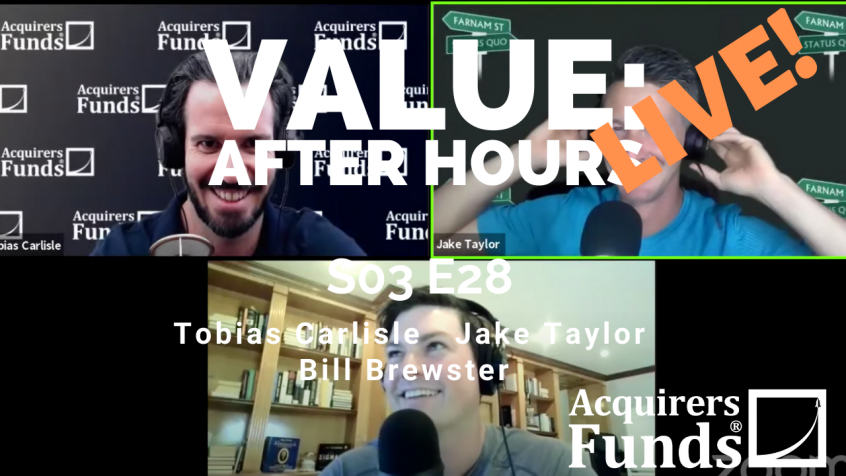In their recent episode of the VALUE: After Hours Podcast, Taylor, Brewster, and Carlisle discussed Value Investors Misunderstand Leverage. Here’s an excerpt from the episode:
Bill: I will go to my grave saying that, for now, value investors misunderstand leverage. That is one place that I think that value investors massively miss underpricing of common equity because of leverage. I think that maybe the reason is that their bibles were written when debt had covenants, and it actually mattered, and-
Jake: [laughs]
Bill: -it doesn’t now. The interest rates are somewhat nonexistent. So, you have no covenants and very low rates. Can it go wrong? Sure. It can go wrong. I don’t know. Today, I was looking at Teva which I’m not saying to go out and buy, I don’t know shit about generic drugs. But if you look at that cap structure, McKesson just settled, do you think they can settle? I don’t know. You can have some pretty interesting outcomes when you have that leverage on business on the market cap, like on the common equity.
Now, a lot of that’s going to be encumbered. The enterprise value to free cash flow to the firm’s not screamingly cheap, but the common equity is compressed in a lot of situations. I think TransDigm was one of those situations last year. But I don’t know. It’s so great. TransDigm worked. Is that because I’m smart, or did I just get lucky buy a bailout? I don’t fucking know, man. It’s a question I’ll never be able to answer. But what I do know is that it was a fortunate bet.
Tobias: Part of the problem with making any prognostications or drawing any final conclusions on the significance of debt or otherwise, or discount rates or otherwise, I think that we’re in– this is going to be my bias, but I think that interest rates are probably below where they would otherwise be freely floating in the market.
Now, does that mean that you use that discounted interest rate where it is, in your model, which gives you these fantastical values? Clearly, that was the right thing to do for the last five years. It was to use this very aggressive discount rate– or not very aggressive. That was the alternative in the market. Do you assume that it goes back roughly to where it was over an extended period of time? Because we’re valuing these things on 10 plus years of earnings.
Does that mean you think it over that period? We’re going to have some mean reversion back to roughly what it has been in the past? If you do, then, you’ve undervalued these things. I don’t know what the right answer is, but I do think that part of it, I think that if you hit the system like this, you pin those interest rates too low, it makes everybody go crazy.
It makes people borrow more money than they otherwise would. You’re incentivized to do that. Borrow a whole lot of money and buy back your stock that’s going to make– particularly if you’re a CEO of a big company, and you get paid on that basis, yeah, you do what you’re incentivized to do. So, you’re going to carry a whole lot of debt, and it hasn’t mattered yet.
Bill: To be fair, though, the 30 year right now is at 186. I don’t understand not issuing the shit out of bonds, especially when credit spreads are tight. Because there’s no way that you can argue to me that 30-year equity capital costs less than 5%. If you’re interested in maximizing the value of the firm, especially when you have no covenants, I just don’t understand why you wouldn’t push the debt markets as hard as you possibly can.
Tobias: In the context of the prevailing interest rates and equity risk premium, it makes complete sense. But that’s the point that I’m making that it’s completely sensible inside the context of what you’re doing now. But the question is, if those interest rates move out, and you have some floating rate, or you have to make that bullet payment at some point in the future with more expensive debt, that’s a different consideration, right?
You can find out more about the VALUE: After Hours Podcast here – VALUE: After Hours Podcast. You can also listen to the podcast on your favorite podcast platforms here:
For all the latest news and podcasts, join our free newsletter here.
Don’t forget to check out our FREE Large Cap 1000 – Stock Screener, here at The Acquirer’s Multiple:



